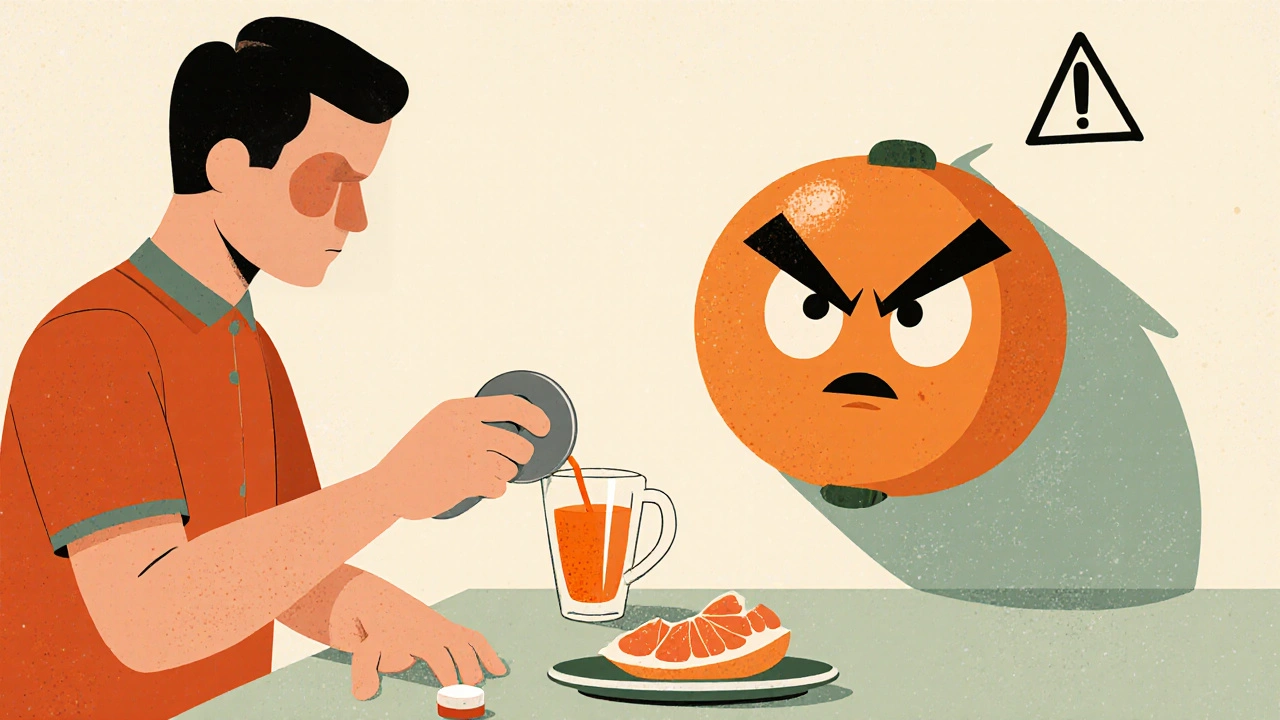Food and Medication: How Diet Affects Your Pills and Health
When you take a pill, it doesn’t just float in your system alone—it interacts with everything else you’ve eaten. Food and medication, the way what you eat changes how your body processes drugs. Also known as drug-food interactions, it’s not just about stomach upset—it can turn a safe dose into a dangerous one, or make your treatment useless. This isn’t theory. It’s why your doctor tells you to take antibiotics on an empty stomach, or why grapefruit can wreck your blood pressure meds.
Drug interactions, when food changes how a medicine is absorbed, broken down, or cleared from your body happen every day. Take antibiotics, medications that kill bacteria but also wipe out good gut bacteria—they can cause yeast infections, which is why probiotics are often recommended. Or consider fentanyl patches, pain patches that release drugs slowly through the skin. Heat from a hot shower or fever can spike how much enters your blood, risking overdose. These aren’t rare cases. They’re common, preventable, and often ignored until something goes wrong.
It’s not just about avoiding bad combos. Food can help your meds work better. Taking vitamin D with a fatty meal boosts absorption. Iron pills work best on an empty stomach, but if they upset your gut, a small bit of food helps—just not dairy or coffee. Even something as simple as generic medications, lower-cost versions of brand-name drugs that work the same way can behave differently if you eat the wrong thing at the wrong time. The FDA approves generics, but your body still needs the right conditions to use them properly.
Some people think if a pill is over-the-counter, it’s harmless with food. That’s not true. Tylenol and ibuprofen sound safe, but taking them on an empty stomach can hurt your stomach lining. If you’re on blood thinners, leafy greens can interfere. Even herbal supplements like Brahmi or saw palmetto can clash with prescription drugs. You don’t need to memorize a 50-page list. You just need to know the basics: when to take your pills, what to avoid, and when to ask your pharmacist.
This collection of articles dives into real cases where food and medication collide—whether it’s yeast infections after antibiotics, how heat changes fentanyl dosing, or why your liver enzymes spike after mixing alcohol with certain pills. You’ll find clear, no-fluff guides on what to eat, what to skip, and how to avoid mistakes that could cost you more than money. These aren’t warnings from a textbook. They’re lessons from real patients and doctors who’ve seen the consequences. What you learn here won’t just help you take your meds right—it could keep you out of the hospital.

Drug Interactions: How Food, Supplements, and Medications Can Clash and What to Do About It
Food, supplements, and medications can clash in dangerous ways-grapefruit can make statins toxic, St. John’s wort can render birth control useless, and vitamin K can undo warfarin. Learn how to spot and prevent these hidden interactions.
